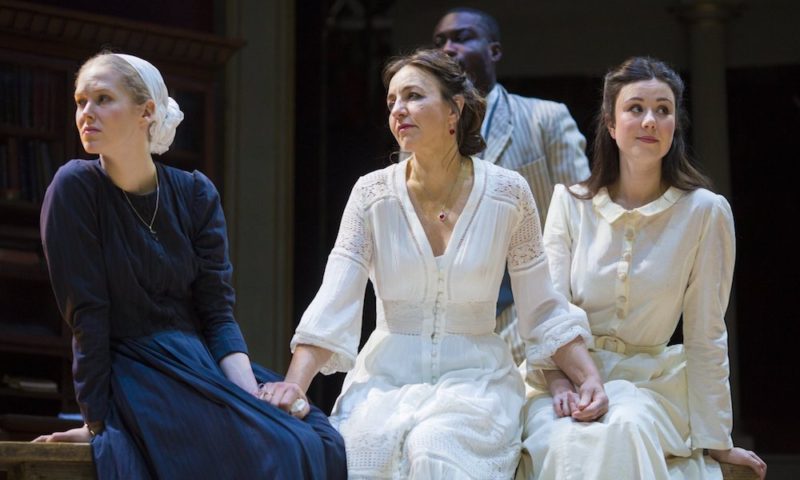There is nothing quite like a good old classic being put on by one of the major theatre houses in Manchester. The tried and tested themes that have captivated audiences of the past are often recycled for a newer generation to enjoy and appreciate once again. Anton Chekhov and his final play The Cherry Orchard has been given the Royal Exchange treatment and as you would expect it is far from a conventional staging.
I have found Chekhov and many of his renowned Russian contemporaries an acquired taste. Their fastidious and laborious exploration of familial discord through which political and philosophical themes of class, social standing, love and war are introspectively put under the microscope. Yet, suddenly Chekov is in vogue. His celebrated piece Uncle Vanya has recently drawn plaudits at Home Manchester, whilst his other notable work Three Sisters will be performed by the Royal Exchange in May 2018.
The Cherry Orchard is no different. Chekhov’s tragi-comedy sees a debt ridden aristocratic Russian landowner return to her family estate where change is in the air. Grief stricken through the loss of her son five years before, Madame Ranevskaya tries to stave off the auction of her beloved orchard in order to pay off her debts.
This current incarnation is co-produced with Bristol Old Vic and directed by the former artistic director of The Royal Shakespeare Company, Michael Boyd. Russian speaking playwright Rory Mullarkey has provided a new translation of Chekhov’s work, giving it a fresh impetus. And, what’s more the bold and brazen production sets it stalls right from the outset, before the players have even taken their places on stage.
It is without any hint of hyperbole that I say the following, the set design for this particular version of The Cherry Orchard is one of the most brazen and audacious sets I have witnessed. Tom Piper’s set design is minimal. Indeed it is less than minimal. It consists of one small table and a side cupboard. Boyd and Piper have focussed on the symbolism of Chekhov’s play, allowing the subtle use of lighting and sounds to create the ambience of Madame Ranevskaya’s once glorious estate.
However, such bold moves only exposes the need for the rest of the production to shoulder the burden of bringing Chekhov’s complex themes and illuminating them under the famous Royal Exchange spotlights. In this regard the acting is crucial to this endeavour. Kirsty Bushell is the lynchpin of this production as the idominatable but fragile Ranevskaya. It’s a stellar performance from Bushell, one that the role demands and one that she more than meets with a deep layered portrayal of the frivolous and tormented Russian aristocrat.
The importance of Ranevskaya’s role cannot be underplayed, it is what Chekhov uses to bring in the supporting array of characters to showcase his complex themes. The diversity in casting and the reasoning behind this should be championed, however, some of these casting decisions work and unfortunately some do not.
It is not to say that the supporting cast do not have their moments. Indeed they do. Jude Owusu plays Lopakhin (the serf made good) to the hilt, whilst Rosy McEwen gives a comamnding performance as Varya (the independent and fiesty adopted daughter.) Nonetheless, when this play calls for real moments of gravitas the cast are unable to truly excel and give Chekhov’s play the justice it merits.
Verdict: A bold version of Chekhov’s much celebrated play. The script is translucent, the set sparse and there is a stellar performance from it’s leading lady. It just lacks the oomph that would make this production the talk of the town. [usr 3 text=”false”]
